#mythology retelling
Text
Icarus making sure to always save the best of anything he has to give as an offering to Apollo. He burns everything in a golden bowl. Icarus begging Daedalus to craft him a lyre so he can learn to play it because it makes him feel closer to Apollo. Icarus trying to raise bees so he always has fresh honey to offer Apollo.
Apollo receiving all these offerings and getting bullied by Artemis because he can’t stop blushing because what is this human boy doing?? Fuck it’s so cute though and he starts lingering above where they’re being held bc he wants to be closer to him for a second.
#fantasy romance#writers on tumblr#writing#author#myth#mythology retelling#myth retelling#mythology#mythology and folklore#greek mythology#my writing#my thoughts#Icarus#Icarus x Apollo#Apollo#ancient greek#greek posts#greek gods
201 notes
·
View notes
Text
Sorry but I find the demonization of Demeter in the large majority if not all of the Persephone/Hades retellings horrid. The story was first written to not only explain the change of seasons, but to comfort mothers when their daughters were taken away from them to be wed, it was originated to give ease to the women when their daughters were torn away from them, and it's been retold to demonize her, the woman whose only wish was to see her daughter once more.
#greek mythology#persephone#hades#roman mythology#demeter#persephades#mythology retelling#retelling#mythology#my post#feminism
84 notes
·
View notes
Text


the hunter
#digital illustration#my art#artemis#artemis deity#moon#hunter#skeleton#greek myth retellings#mythology retelling#mythology aesthetic
27 notes
·
View notes
Text



I've been thinking about Golden Maiden, Silver Bride last couple of days, so I made the central characters in this picrew!
Miävi (MC)
she's basically a magic robot made out of silver and gold
she was created couple of years ago and her body was made to be adult's body in shape but because she's not human with human brain that needs development, in her behavior and understanding she's basically a teenager/pre-teen, though of course she has less life experience than a human teenager
she's sort of a mix of veere (a sort of demigod, who are kinda distantly like elves (though based on Baltic Finnic mythology's Kalevanpojat/Kalevipoeg)) and mountain elf of metals, since she's made of metal and a part of the soul of her creator, Tyynövin, who is veere
she's based on the mythical figure Kultaneito (Golden Maiden) from Baltic Finnic mythology
she's very sheltered and a people pleaser and extremely repressed (has some anger issues buried deep into that repression)
Tyynövin made her to be his perfect bride, but she was not and he planned on murdering dismantling her, so she escaped
Tiera
Miävi's guard and father figure
human
he was extremely devoted to Tyynövin, but he became attached to Miävi and when Tyynövin was about to kill her, he choose her over his loyalty and helped her escape
Tyynövin's magic was keeping a curse from spreading in his body though, so when he is on the run with Miävi, the curse slowly destroys his body
he's quiet, not great in social situations and looks always angry, but is also very caring
extremely divorced even though he is actually still married
he's extremely lightly based on the mythological side character of the same name from Baltic Finnic mythology
(in the myths he's a brother in arms to Lemminkäinen and because he's so eager to get to war he doesn't consummate his marriage with his newlywed wife, and with the homoerotism inherent to all-male armies I could only think there's no heterosexual explanation for this, and I knew I needed to make a character out of it)
Vanaróu (Vaan)
he's a veere from Caie's clan
his character is also lightly based on the tragic hero Kullervo from Baltic Finnic mythology
Tyynövin is from the Urva's clan, who massacred the Caie's clan, which only Vaan survived, so in vengeance he killed Tyynövi's wife, which is why Tyynövin tried and failed to replace her with Miävi
Vaan lives with humans who try to stay independent from the Urva empire
he has a bloodthirsty talking sword and regenerative magic that heals his wounds
he's a certified himbo, but also has a violently angry side, though he rarely let's it be seen
GMSB tag list: @siarven @worldbuildng @outpost51 @faelanvance
Let me know if you want to be added or removed!
I hope I didn't miss anyone since I seemed to have lost the tag list i made for GMSB, so I went through my posts where people might have asked to be added to this. If I didn't tag you and you had asked to be tagged earlier, please let me know and I'm very sorry :D
#writing#my writing#writeblr#fantasy#am writing#my wips#original character#my ocs#mythology retelling#retelling#dark fantasy#original fiction#gmsb
41 notes
·
View notes
Text
The only way a "feminist retelling" is still feminist is simply where genders are equal, despite history (or the original story) saying otherwise.
Example. History/Original text: "Men do all major decision-making and fighting and don't do childcare while women do housework, are quiet, and take care of children."
Retelling? Anyone can do whatever they want. Regardless of gender. Everybody does sports, school, war, caregiving, ruling, etc. And if the original text has any sort of sexism, it can be changed.
If you'd like, you can have possible pushback to make "tension" but also?? Why not just...not have that? A man would rather be the caregiver? Fantastic! A woman leads the country? Awesome! Or vice versa and still are respected for what they do and no one bats an eye? Hell yeah because there's nothing wrong with someone enjoying what they do as long as it's not affecting others! :D
Feminism does not mean hatred/bitterness towards men or always portraying them as awful. JUST BECAUSE THE SYSTEM WAS MYSOGINISTIC DOES NOT MEAN THAT EVERY MAN FOLLOWED SUIT!!! It also doesn't mean that every single man is a horrible person!
The retelling should not have misandry to "make up" for the original's misogyny. If your story has this vendetta against all men and/or portrays them only in a negative light, then it's no longer feminist.
Also please stop with the near-constant sexual violence in these retellings ಥ╭╮ಥ Especially if it wasn't there in the first place or doesn't add to the story other than shock value.
#THIS IS OPINION#I'm writing right now and remembered that stupid retelling I found and had to vent. Why'd they do this to you Penelope?! 😭#retelling#mythology retelling#<- because this is about THAT in particular. If you know. you know.#this is probably a lil all over the place and ramby but idk HA#Mad rambles#shot by odysseus#essay
18 notes
·
View notes
Text
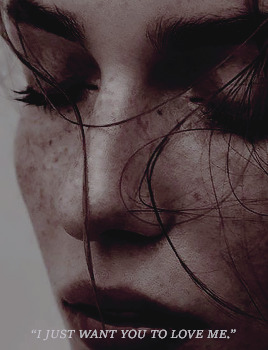
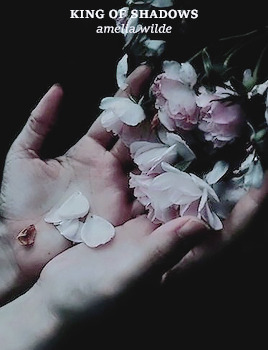



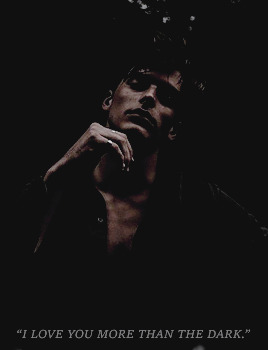
books i’ve read ;
— King of Shadows trilogy by Amelia Wilde.
"Know in your heart that I'm going to keep you with me for as long as you live. For as long as my heart is beating. Because I'm a selfish fuck, Persephone. I can't live without you."
#by esther#t: books#b: ad#b: reads#kingofshadowsedit#litedit#bookedit#dailylit#chaptersnet#nalitsource#booksocietynet#booknet#fictiondaily#fictionnet#booksociety#mythology#mythology retelling#king of shadows#hades x persephone#amelia wilde
18 notes
·
View notes
Text
What It Would Mean To Be Sun-Kissed
He knew at that moment that he was doomed. He felt it with a certainty that radiated through him like the warmth of this incredible new light—he would never marry, never sire children, for he would never love anything so well as this again in his life.
genre: romance, mythology retelling | word count: 1,380
cw: imprisonment, non-explicit sexual content
Icarus had lived his entire life in darkness. Confined to the tower as he was from such a young age, he knew very little beyond the cold, stone walls of their rooms and the dim light of his father’s lanterns. He caught glimpses of the sky when the king’s servants would come to their door with food and materials for his father’s inventions, but the deliveries happened under the hazy blue cast of the early morning, before the great chariot made its trek across the sky.
His father had told him of Apollo and his sacred duty, of course. He’d told him of the whole pantheon, including the sea god whose punishment of Minos had led—however indirectly—to their current imprisonment. Icarus had yet to see the chariot for himself, though, and could only imagine the shape of the sun from the stories his father constructed as he worked. He wondered if some long-faded part of himself remembered its touch on his face from when he was a child, unshackled and carefree, for he still felt warmth blossom on his skin when his father would describe bright days on Crete before the island was cursed with the Minotaur, before Pasiphaë was driven to madness for her husband’s sins. His father spoke kindly of the queen, daughter of Helios, and Icarus thought he could sometimes see the light of her smile as his father recounted it in the days before it faded.
Icarus drank these stories like nectar, and would sit at his father’s side as he worked long into the night, handing him tools and strips of leather in enraptured silence. He imagined that the heat of the melted beeswax was that of the sun at his fingertips, reaching out to welcome him back to the light after so long spent locked away. So engrossed was he that he didn’t think to ask his father where he’d gotten his feathers until they were fitting the first set of wings to his arms. His father only smiled and tapped his nose—his greatest feat of engineering, he said, would be their escape. He led Icarus to a stretch of wall devoid of his many tools and diagrams, explaining that there had once been a balcony in their tower that the king had ordered torn down and bricked up upon their internment. One by one, he removed the stones he’d meticulously carved loose to create an opening in the wall—just large enough that a starved man might crawl through—and Icarus got his first glimpse of the sun.
He knew at that moment that he was doomed. He felt it with a certainty that radiated through him like the warmth of this incredible new light—he would never marry, never sire children, for he would never love anything so well as this again in his life. Light reflected off the waves in a glittering, piercing dance as the sun dipped toward the horizon, painting the sky in shades of amaranth and ochre and casting a gold wash over the outer walls of his prison. Heat embraced him even as the sea breeze whipped his hair and stung his face, erupting his arms in a gooseflesh he’d thought could only come from the cold touch of his stone floor. Gulls screeched in adulation as they soared, their wings silhouetted against the brilliance of the fiery clouds. Icarus understood the stories then, of how people saw the face of a god in this light, of how Perse could come to bear Pasiphaë and her siblings. What he would give to be welcomed in such a way, to be held and loved by something so magnificent. That night, he would let his mind and hands wander down paths of what it would mean to be “sun-kissed.”
In the months that followed, Icarus dedicated himself anew to his father’s work. His eagerness to be free of their tower was like fire in his blood—a burning, pulsing need to escape the darkness and envelop himself in the sun’s embrace. Now that he was in on the secret, he volunteered to collect the feathers from the lip of the ruined balcony, to scrape away at the grout and widen their path of egress. If his father noticed the fervor in his eyes in these moments, he said nothing, likely attributing it only to that of a young man anxious for his freedom. He couldn’t have known the truth—that his son had fallen well and truly in love. When Icarus pulled the stones away to gaze upon his beloved, he savored each touch of sunlight on his face like a kiss. He would grasp the rough stone and lean out as far as he dared, drinking in the warmth he’d been so long denied and watching his beloved paint the island and the sky.
He could only ever gaze upon its face during sunset, as the angle of its glare hid the western tower from the king’s watchful eye. Icarus didn’t mind—it was the face he’d seen first, and the face he liked best. He would observe in awe as his beloved dressed itself in godblood and languished in sheets of scarlet and navy before retiring behind the horizon. It felt like a promise of what could be once Icarus was free, when he and his father escaped their tower upon his ingenious wings and Icarus could spend every day under the sun’s caress. His skin would darken from his rejoicing, be left slick with sweat from its heated touch. He’d awaken with the dawn and pray thanks to Apollo for bringing his beloved to him, and as his ecstasy cooled with the onset of dusk, the last words on his lips would be a farewell.
When the day finally arrived, Icarus felt near-drowned in anticipation. He trembled as his father affixed the wings to his arms, nodding along but only half-listening to the warnings he’d memorized by now. If there was a new concern in his father’s eyes as he instructed him not to fly too high, Icarus was too elated to hear it. Soon he would be flying, soon he would be free. Free from the walls of this terrible tower, free to stretch his arms as far as they could reach, free to bask in the beautiful light of his beloved without being caught and risking banishment to the cursed labyrinth below. Caution seemed so insignificant in the face of it all, and was easily whipped away by the wind when his father opened the door to their salvation for the final time.
Taking flight felt as natural as breathing. The wings were less unwieldy in the wind, and it only took a twist of his wrist, a slight angling of his elbow, and he was soaring as easily as the gulls squawking curiously around them. He was not weightless, but there was a delicious freedom in his defiance of nature—in being unfettered not just from the confines of the tower, but the confines of gravity itself. Unbound and unbeholden, Icarus was free to look upon his beloved in all its glory.
His father had chosen the afternoon for their grand escape, when Icarus’s beloved was highest in the sky, blessing them with a radiance the likes of which he’d never felt before. Updrafts from the Aegean Sea carried cool air to his face, and Icarus harkened back to his first meeting with his beloved all those months ago. He had been right—this was a better touch, he knew, than any lover could ever offer. To be caressed like this, to be surrounded in joyous warmth was beyond pleasure, beyond feeling, beyond love itself. His beloved beckoned, and Icarus obeyed with unhesitant exhaltation.
Sense gave way to sensation as the light and warmth overwhelmed him. All else washed away in their wake, leaving behind only Icarus and the sun. His father’s shouts from further and further below faded into the orchestra of wind and waves, the melting wax against his arm deliquesced into tender, heated kisses against his skin, his dizzying descent spiraled into a frantic dance of devotion. Nothing else mattered in that moment, because as Icarus fell, he swore he could see his beloved’s face at last.
Did you like this post? Buy me a coffee!
Want to work together? Check out my editing services!
Tags: @memento-morri-writes @aquadestinyswriting @8clarify8
5 notes
·
View notes
Text
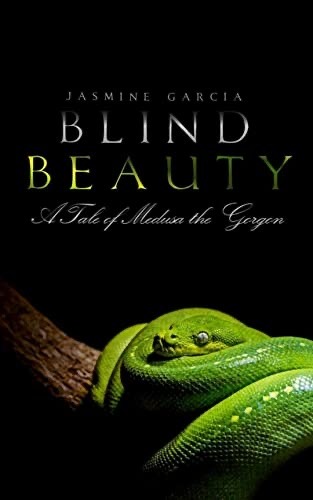
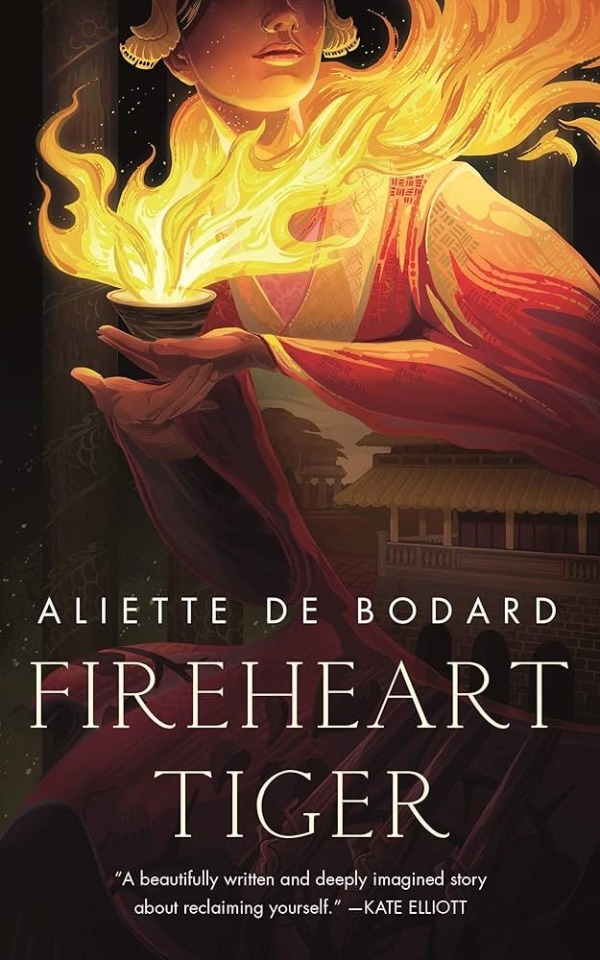
Blind Beauty by Jasmine Garcia-
On the isolated isle of Sarpedon, cold blood under scaly flesh pumps into a creature with snakes for hair, and serpentine features. Cast from society by the wrath of a Goddess, she is shielded by the bodies of stone along the shoreline. They warn off mortals; victims of her curse that had come to harm her. Soldiers, huntsmen, adventurers. Her curse afflicted all. All but one. A beauty by the name of Mirra washes ashore and doesn't succumb to Medusa's menacing sight. Thus begins the tragically romantic tale of a blind seer, and an untrusting gorgon.
Fireheart Tiger by Aliette de Bodard
Quiet, thoughtful princess Thanh was sent away as a hostage to the powerful faraway country of Ephteria as a child. Now she’s returned to her mother’s imperial court, haunted not only by memories of her first romance, but by worrying magical echoes of a fire that devastated Ephteria’s royal palace.
Thanh’s new role as a diplomat places her once again in the path of her first love, the powerful and magnetic Eldris of Ephteria, who knows exactly what she wants: romance from Thanh and much more from Thanh’s home. Eldris won’t take no for an answer, on either front. But the fire that burned down one palace is tempting Thanh with the possibility of making her own dangerous decisions.
#sapphic book tournament#lesbian#sapphic books#lesbian books#sapphic#lgbt books#sapphic fiction#lgbt characters#lgbt#lesbian romance#medusa#Medusa retelling#greek mythology#mythology retelling#blind beauty#Jasmine garcia#fireheart tiger#aliette de bodard#lesbian fantasy novels#lesbian novels#lesbian novellas#sapphic fantasy#saphic#sapphic characters#sapphic romance#sapphic science fiction#sapphic stories#lesbian characters#lesbian stories#lesbian romance novels
12 notes
·
View notes
Text
Hello, I have written a new fic! :D
This time I'm torturing Graham and Flint.

#toontown corporate clash#ttcc#toontown#flint bonpyre#graham ness payser#they're gay and I love them#fan fic#fiction#ao3#mythology retelling#orpheus and euridyce#orpheus and eurydice#firestarter#pacesetter
22 notes
·
View notes
Text

Her Dark Wings by Melinda Salisbury [x]
#book review#her dark wings#melinda salisbury#ya fantasy#persephone#greek mythology#retelling#mythology retelling#ebook#kindle#bookblr#booklr#bookish#book lover#netgalley
7 notes
·
View notes
Text
Me going feral over the idea of Mishipeshu x his human lover. He lurks in the lake, waiting for her to come back. He only attacks boats and anyone passing over now because he’s trying to find her. He knows that she was taken from him as a punishment for him daring to try to be more than what he is-a monster. Just because a human saw beyond his appearance doesn’t mean that at his core- that isn’t what he is. He’s a monster. That’s why he’s confined to the lake, only able to slip out through tunnels hidden from humans view for short periods of time. Eventually he has to come home, defeated and deflated. No matter how much human magic he learns, he can’t turn back time, and he can’t regain even a smidgen of the humanoid form he had when she was able to do it for him.
#monster fuqqer#monster fudger#monster k!nk#monsterfucking cw#monster boyfriend#monsterfucking nsft#monster fluff#monster bf#monster husband#monster kink#monster fucker#monster romance#monster lover#tw monsterfucking#myth retelling#mythology retelling#my writing#writers on tumblr#writing#author
107 notes
·
View notes
Text

A Touch of Darkness by Scarlett St. Clair
"'Life is hard out there, Hades, and sometimes living it is penance enough. Mortals need hope, not threats of punishment.'"
Year Read: 2023
Rating: 3/5
Thoughts: Lore Olympus set me on a Greek mythology kick, with emphasis on Hades/Persephone stories. One of the nice things about being a book hoarder is that I had at least two more to choose from just waiting for this mood to strike (and probably more that I've forgotten, let's be real, since I absolutely did not remember buying that copy of Neon Gods-- where did it even come from?). Again, this is by no means a work of great literature, and it's pretty average as far as Greek myths and romance novels go too, but I'm enjoying anything that actually makes me want to read these days. I like the characters and the world, and I like that it doesn't make a lot of mental or emotional demands on me as a reader.
St. Clair's contemporary adaptation is a little darker and sexier than Lore Olympus's, and I like what they both bring to the table. I especially enjoyed the similarity of Hades to a crossroads demon, bargaining with mortals for their souls in order to make them conquer their weaknesses. Persephone doesn't have a lot of personality by comparison, but she has a decent arc over the course of the novel. There aren't a lot of wrenches to throw in that relationship, but there's plenty of banter and smut, as well as some decent attempts at a healthy relationship and communicating through issues.
By comparison, the side characters are a bit lackluster though, and I never felt that invested in the minor dramas with Lexa or Adonis. There are also some pacing issues, which might just be a side effect of a first novel. There are some odd time jumps and random sex scenes like we had to meet a quota in order to be classified as steamy romance. I would have preferred a little more focus on some of the plot issues, which are glossed over very quickly at times. Regardless, this is fun for what it is, and I'll likely pick up the next books on a case by case basis.
#book review#a touch of darkness#scarlett st clair#hades x persephone saga#mythology retelling#romance#adult fiction#3/5#rating: 3/5#2023
3 notes
·
View notes
Text
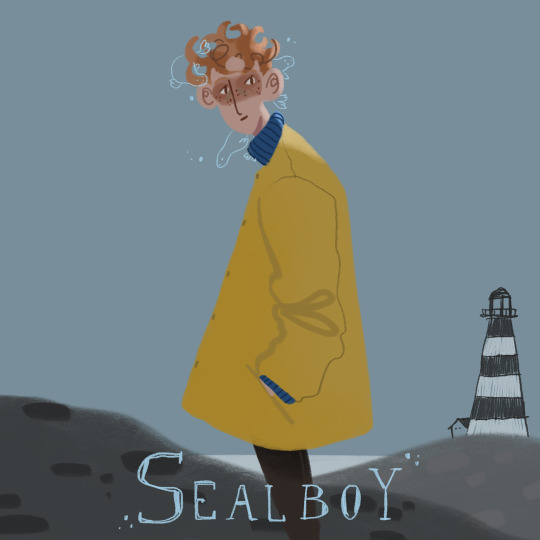
the son of the selkie
#selkie#mythology#mythology retelling#lighthouse#the yellow jackets of the fishemen#fisherman#oc art#my art#sealboy
11 notes
·
View notes
Note
I don't know why they make retellings of women based in Ancient Greek mythology that their only plot is assault. Like why?? Circe, Helen, Ariadne, Medea,Electra, Antigone for example...do you even recall any of them having a sa story??? No and those stories were made thousands years ago, but authors back then wanted to make their characters more complex, that's why people still know their stories
Making their stories with modern ideologies and political agendas ruin everything. Women don't have to be reminded in fiction as well, let them be independent and courageous and kind without having to go through this...
I saw a comment from another Greek blog that I'd like to paste here:
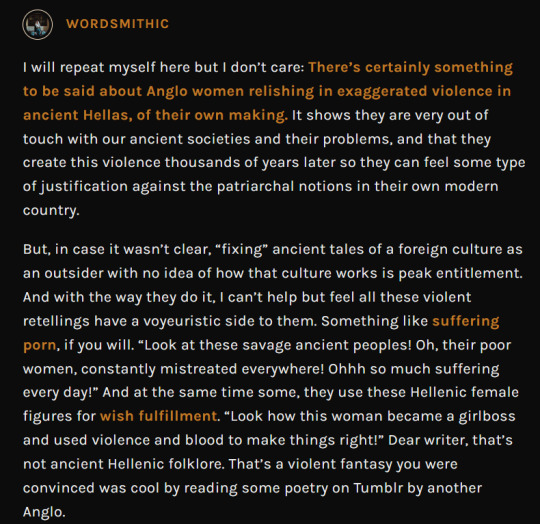
Here is the link to the post
24 notes
·
View notes
Text

obsessed with this art print that I've just added to my e t s y @ FrecklyGrace
#percy jackson#percy jackon and the olympians#percy pjo#greek mythology#mythology retelling#medusa#ancient greece#feminist history#mythology art#medusa art
2 notes
·
View notes
Text
Norse Retellings - Sigyn and Angrboda
A/N: This post has been sitting in my drafts for almost a year, but my opinions are the same. At some later date I might reread The Witch’s Heart to reassess.
I’m jotting down some thoughts I’ve mulled over after finishing Cat Rector’s The Goddess of Nothing at All. It’s a retelling of the Norse myths through Sigyn’s perspective, making tweaks here and there to the stories on the grounds that some details were altered in the later accounts to make her husband Loki more of a villain and herself more of a clueless or complicit bystander.
Reading this book naturally reminded me of Genevieve Gorchec’s The Witch’s Heart. It does something similar but with Angrboda, Loki’s other wife or mistress, depending on how you interpret their relationship. In that book, she’s definitely Loki’s wife. Both books choose to make a wife/lover of Loki into the protagonist, and I’m not sure which version I like better. They each have their pros and cons, but my biggest problem is how similar these characters are despite being from different races and different parts of the Norse myth narrative.
Both of these leads deal with three major issues or arcs:
self-discovery or actualization
being in a relationship with Loki
protecting their children
You can see how sharing not one but three of these can make them seem so alike. There are, fortunately, finer details that distinguish them a bit.
To start, they initially have different motives. Sigyn in GoNAA wants a title to make her a “real” goddess, but Odin has denied it to her for flimsy reasons. She’s so desperate to win his favor and feel empowered that she recruits Loki as her teacher in seidr in exchange for getting him out of exile from Asgard. Angrboda in TWH escapes the Aesir after being “executed” by them to live a peaceful, solitary life. This is complicated by her amnesia, which leaves her uncertain of her own identity. I think Sigyn’s motive makes her more proactive than Angrboda in the beginning.
However, Sigyn’s drive for a title falls by the wayside as she gets wrapped up in Loki’s sheningans and, later, the trials of raising a family. I suppose it offers commentary on how, no matter how much Sigyn wants recognition for herself, her story is more about Loki and her children. The ending promises a bit more for her, so there’s that.
For Angrboda, she isn’t as proactive until later in the story, and it’s still only tangentially related to discovering her identity. Like Sigyn, her arc gets swallowed up by Loki and her children. But Angrboda’s real disadvantage is that she has little involvement in the other Norse myths apart from the ones about her children being taken by the gods and her giving Odin information about Ragnarök. This means she hears more about things than participates in or even witnesses. Sigyn has more to do, so more of the myths directly impact her. Rector also tweaks the story about Angrboda and her children (Hel, Fenrir, Jormungandr) to let Sigyn be more involved, which Gorchec does not do in TWH.
Rector has more success with Sigyn as a protagonist because she’s willing to play around with details from the myths and cast it as the “true” story (or at least Sigyn’s version of things) so that Sigyn can have a greater presence. Gorchec keeps more closely to the original myths, apart from making Angrboda also be Gullveig, Heid, and Hyrrokkin. As with Rector’s Sigyn, these changes allow Angrboda to participate in a few more incidents in Norse myth. I wish she had been willing to take it even further, especially when revealing Angrboda’s backstory beyond the hints we get. Whereas Sigyn’s concern for her family ultimately overshadows her personal ambitions, which in itself can make sense as a character arc, Angrboda’s search for her true identity never disappears but also doesn’t gel with her concern for her family. These two desires keep interrupting each other for attention in the narrative.
All that said, Sigyn and Angrboda in their respective retellings are portrayed as, for lack of better words, the “better” partner to Loki. Angrboda in GoNAA is little more than a witch with a vendetta against the Aesir; that’s the only reason she partners with and has children with Loki. This actually makes her more interesting in my opinion. She does care about her children, but she sees them as tools for revenge, too. Sigyn, by contrast, becomes a more nurturing mother to Fenrir, Hel, and Jormungandr (and Sleipnir) despite not being biologically related (and feeling betrayed by Loki).
Sigyn in TWH ... well, we don’t have much to say about her except what the original myths suggest. She’s Loki’s faithful wife, but she’s understandably appalled by his relationship with Angrboda. She seems naïve and lashes out at Angrboda for being Loki’s “mistress” with monstrous children. While Angrboda never meets Sigyn’s sons, she too takes care of Sleipnir for a time.
In short, Rector and Gorchec are not interested in making the “other woman” more likable than, or even as likable as their heroine. It makes sense, but this contributes to the “sameness” these retellings share. Sigyn and Angrboda are both well-meaning women who fall in love with Loki, love their children, are betrayed by Loki, fall out of love with him, then come to forgive him by the story’s end. They and the “other women” start out disliking each other but develop begrudging empathy.
I think, in the end, while the protagonists could stand to be more uniquely developed beyond familiar “heroine of myth retelling” tropes, Rector is more successful at lending texture to her rendition of Asgard and the other worlds, which definitely doesn’t stick with Viking-Age technology or atmosphere. I rather wish Gorchec had allowed Angborda to interact with more characters, even if they had to be original. I like her portrayals of Skadi and Gerd, but we could have seen more of the giants to better understand their culture and how the perceptions of the Aesir could have been skewed. I prefer the more faithful “ancient” vibe of The Witch’s Heart over the anachronistic world of The Goddess of Nothing At All, but it needed more concrete depth and dimension, not just teasings. Same goes for Angrboda herself. Our leading ladies can be more complicated.
#book review#long post#the witch's heart#the goddess of nothing at all#norse mythology#mythology retelling
2 notes
·
View notes